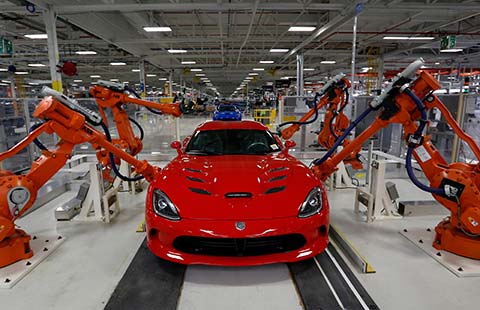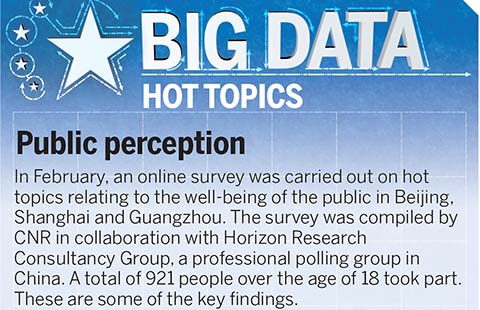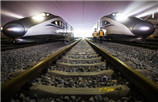We need China to succeed: EU chamber of commerce head
(Xinhua) Updated: 2016-03-12 10:20BRUSSELS - European companies embrace China's "new normal" and are keen for Beijing's success in its economic transition as well as stronger China-Europe trade ties, the president of the European Union Chamber of Commerce in China Joerg Wuttke told Xinhua.
Amid a global slowdown and China shifting gear to medium-to-high speed growth, some 1,800 European companies operating in China, ranging from veteran multinational corporations to emerging new firms, were to some extent expecting to face headwinds this year.
"Some of us do quite well, some of us are taking a hit," Wuttke said. With a long-term strategy for China, the chamber's members so far have no plan to withdraw from the country and continue to operate on the ground.
"China for us is vital," Wuttke said. "We need China to succeed, and we all benefit mainly if China gets reforms implemented."
The president of the chamber, recognized by Chinese and European authorities as the official voice of European business in China, embarked on a trip to Brussels at the beginning of this year to brief the EU on "what's going on in China economically and politically."
In Beijing, the Chinese government has said that the country is on a journey of economic re-balancing, trying to ditch its over-reliance on manufacturing in favor of domestic consumption and services.
Following China's economic transition, the gross domestic product (GDP) growth rate of the world's second-largest economy decelerated to 6.9 percent last year, the self-driven slowdown was dubbed the "new normal."
"We are not worried about the lower growth," Wuttke said. "Even you have 5 percent growth, the base of China's economy is so much bigger; 5 percent now is much bigger than 10 percent five years or 10 years ago."
China's economy still has room for growth, European companies were prepared to embrace the "new normal" and more than half of them remained optimistic about their growth prospects, according to a business confidence survey issued by the Chamber in Beijing in June 2015.
Chinese authorities acknowledged that its "new normal" didn't come without risks. The Chinese economy is currently faced with potential risks arising from property bubble, financial sector, shadow banking and overcapacity.
Wuttke, who has spent more than 30 years in China, said China's current transformation pains reminded him of the Asian financial crisis in 1990s when "China was having a really hard time". But China had "a very strong government with leadership" and managed to go through it, he added.
It was important for Beijing, as it did in 1990s, to extend the message that "it is tough, but we can know how to handle it," he said.
- Polish parliament ratifies agreement to join AIIB
- Internationalization of Chinese yuan to boost Africa's economy: economist
- Firms set sights on 5G networks
- Many see big picture for virtual reality
- Sky is the limit for drone manufacturers
- Wheels turn fast for driverless cars
- Slower economy 'won't deter anti-pollution efforts'
- Beijing Kunlun creates AI startup in United States
















